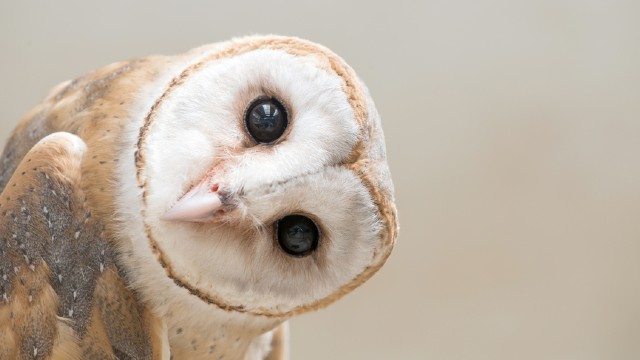What is your money personality?

In this edited extract from her book Ditch the Debt and Get Rich Effie Zahos takes a look at the five main money personality types. Which one are you?
I’ve always been fascinated by why we do what we do when it comes to our money. Why is it that some of us are always the first to buy a round of drinks on a Friday night while others are happy to accept the first round but then quietly walk away when it’s their turn to shout?
Why is it that some of us on, say, $60,000 a year are better with our cash than those on $160,000 a year? Why is it that some of us have no fear when it comes to investing yet others just keep saying, “I’m gonna do it!”
Knowing what drives your financial decisions is the first step towards reaching your money goals, which is why I think it’s important to get to know your money personality.
Understanding why you do what you do is one of the first steps to helping you shape your approach to spending, saving, and investing.
When it comes to money, the ‘why we do it’ is more complicated than the ‘how we do it’, which is why I caught up with behavioural economist Phil Slade, author of Going Ape S#!t!, who says our money personality is not genetic like the colour of our eyes or skin tone. Rather, our money mindset is learnt, and it’s a reflection of how we have worked out how to survive and navigate the world around us.
A study from the UK’s Cambridge University found that our core behaviours and money habits can be formed by age seven. By the time we hit puberty, the lessons we’ve learnt around money are pretty hard-baked into our instinctive reactivity. So, naturally, changing our money personality can be a slow process. But it can be done. Your money personality isn’t set in stone – you can master your money mindset.
Mr Slade says our financial attitudes and monetary behaviours are like windows into our soul, into the very essence of who we are and how we think.
When we fail to understand ourselves, we create all sorts of cognitive blind spots and bad money habits that undermine our ability to build sustainable wealth. Knowing your money personality is to light the pathway to financial success.

5 main money personalities
There are five dominant money personalities – spender, saver, debtor, investor and avoider. Of course, these five money personalities have many different shades. You could be a social value spender – you buy things to boost your self-esteem. Or you may spend up big so others can admire you.
Whatever your shade, the end result is that if someone is selling, you’re buying. The important point here is to be proactive and take the time to understand your money type. Some behavioural economists say people’s attitude to money can mimic certain animals (I’ve taken the liberty to add in some of my own animals).
So, let’s have some fun, and take a trip into the wild to see which furry (or feathered) critter best describes your money mindset.
Peacock – The Spender
If you’ve ever seen a peacock fan its tail, you’ve almost certainly had a ‘wow!’ response. It’s so impressive but, of course, it’s all done for show to attract a mate. A peacock’s gorgeous tail can act as a drag in flight.
It’s much the same with human Peacocks. They show off their money, often lavishing gifts on friends and wearing the latest styles to impress everyone. But all that spending can come at the cost of an empty bank account or a super-sized credit card debt. Of course, there are various levels of spenders and status spending is just one type of spending.
Tips to break the cycle
If you love spending, you could be a Peacock. But ask yourself, who is benefiting from it all? Retailers, yes. But probably not you. To break the spending cycle, try the ‘sleep-on-it’ test. If you’re tempted to buy an item, walk away and sleep on it. Think about why you’re really making the purchase. Is it all part of keeping up with the Joneses? Have you just received a pay bonus?
What is the trigger? Go back and have another look at the item. Chances are it won’t seem so exciting the second time around.
Squirrel – The Saver
Squirrels are cute and fluffy, and crazy about hoarding nuts. If you’re a super saver, you could be a Squirrel. Having some cash behind you makes sense; the trouble is that Squirrels can take it to extremes. They can be so risk-averse that they don’t invest any of those savings or do anything to help their money grow.
Tips to break the cycle
Saving is not the same as investing, and if you relate to the Squirrel, a simple way to break through the fear barrier is by taking baby steps. Start out small, leaving the bulk of your cash intact. As your comfort levels and confidence grow, you’ll realise that investing doesn’t mean handing over control of your money – it’s about getting more from it.
Sloth – The Debtor
Besides being super cute, sloths are known to be slow, but it’s not out of laziness. In fact, it’s a survival mechanism. Sloths creep along to avoid being seen by predators that look for signs of movement.
When it comes to money, human Sloths move slowly, too, but typically because they’re weighed down with debt, living payday to payday, and regularly maxing out their credit card. That’ll slow anyone down!
Tips to break the cycle
Sloths like to spend but unlike Peacocks they’re not worried about status. They simply don’t put much effort into keeping their financial assets in order. Some creative thinking can get money Sloths moving again. If this sounds like your money personality, use an app to keep track of your daily expenses, check your bank account more often and don’t allow yourself to borrow too much from friends or fast-money outlets. Set up a regular transfer of funds out of your everyday account and into your credit card or loan account.
Owl – The Investor
Fun fact: Owls can rotate their necks 270 degrees, letting them carefully inspect everything. If you get a hoot out of regularly checking your portfolio, you could be an Owl. You’re a pretty good money manager, you’d jump institutions for a 0.5% increase in your savings rate, and you swoop in to pick up hot investment opportunities.
Tips to break the cycle
Who needs to break this sort of cycle? If you fit this picture, give yourself a pat on the back. Just remember to keep the emotion out of investing. If anxiety sees you constantly trading, your investments could end up underperforming.
Ostrich – The Avoider
The Ostrich is someone who would rather bury their head in the sand than organise their finances. They fail to make long-term investment decisions and leave everything to luck or fate. Out of sight, out of mind! The trouble is that by continually avoiding the real issues around taking care of their money, Ostriches can never be at their financial best.
Tips to break the cycle
If the Ostrich sounds like you, it’s important to have an action plan. Create a simple list with no more than two goals. Set dates to achieve them, have milestones to tick off and share your goals with a money buddy to help you stay motivated and accountable to your plan.
Get to know your money personality
Maybe you recognise yourself in one of these five personalities. What’s more likely is that you’re a combination of different money personalities. Human beings are complex, and as Mr Slade notes, our money personality is less about boxes or categories and more about spectrums.
Not only can you have a mix of different money personalities but you can also change over time as you learn to keep the negative and more reactive aspects of these money personalities in check.
Having said that though, Mr Slade suggests focusing on your dominant type and creating some simple rules of thumb around that. What matters is that you start thinking about your money personality.
Make the most of your money mind
It’s not always easy being honest with ourselves, especially when it comes to admitting our shortcomings. But not understanding your money personality is like having a mischievous child whose behaviour you turn a blind eye to.
Ignoring that behaviour may lead them to create all sorts of mayhem and mischief. Now imagine handing your life savings to that kid, and expecting them to take sensible steps with the cash. Things will end badly. Yet in a sense, this is exactly what we are doing when we ignore our money personality.
There’s a little bit of that mischievous kid inside each of us and Mr Slade argues that understanding our money personality is like opening our eyes to that wayward inner child, and helping them learn, mature and behave in more appropriate ways.
No matter which of the five money personalities you relate to, it is important to recognise your weak spots. Mr Slade points out that getting a better idea of your money mindset is like drawing a map to avoid potholes in the road ahead.
Once you know where the hazards are, you can maximise opportunities by focusing on a clearer path. This brings confidence and clarity, and helps you get the most out of life – and more from your money.

This is an edited extract from Ditch the Debt and Get Rich (Are Media Books, RRP $29.99), republished with permission.
Main image source: fizkes/Shutterstock.com
This article was reviewed by our Editorial Campaigns Manager Maria Bekiaris before it was updated, as part of our fact-checking process.






